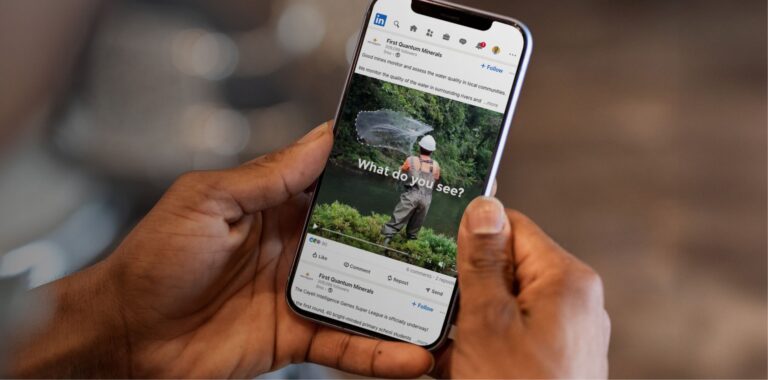Being current: Inside sustainability communications

Bladonmore’s David Willans speaks to Tess Longfield, Head of Sustainability Communications, Sabre Corporation. Tess has spent her career in communications roles in the travel and tourism industry. At Sabre, Tess is responsible for communicating its sustainability strategy and progress internally and externally. Sabre Corporation is the world’s largest global distribution systems provider for air travel bookings.
It’s great to talk, thanks for making the time. If your role didn’t exist, what would Sabre be missing out on?
Before my role existed, we weren’t communicating our sustainability efforts. There’s a degree to which my role involves getting our story out there, but the more strategic value my role brings is an outward looking perspective into the business. This keeps us relevant and makes sure we fit well into wider world conversations.
What makes that fit with the outside world so important?
It’s about going beyond reporting just what we’re doing, to a place where our stakeholders see what we’re doing as valuable. Whether that’s in terms of customer or partner preference, license to operate, employee or talent attractiveness or something else.
With the transition set to have such a huge impact on our industry, extending beyond reporting to communications is only going to be more important.
What is it about the transition that makes communications more important?
The travel and tourism industry creates huge positive and negative impacts. One in 10 people work in our industry. The livelihoods of whole communities, and indeed countries, depend on tourism. The industry can also be a driver of environmental protection and restoration, but it has significant negative impacts too.
Emissions from travel and tourism are already about 8% of total global greenhouse gas emissions and there is huge growth predicted in the coming years. The transition – however it happens – means there will be significant changes in travel, particularly aviation. As a major player in the industry, we need to have well thought through positions on what is changing and play a proactive part. If all we are doing is reporting on what we’ve done that year, we’re going to be seen as out of touch and reactive. Even if it’s not true internally, it will still have real business implications.
How important is internal sustainability communication for Sabre?
Internal communications is a big focus now, having launched our strategy in early December. We know our people are engaged on the issues – 94% of our people want to be more actively involved in sustainability – so we’re combining the strategy launch with a program to help people make changes in work and in their lives outside work.
Getting the tone right is absolutely key. We’ve worked hard to avoid any hint of worthiness. We’re being really clear about why sustainability matters to the business as much as the wider world.
I’ve made communications part of how we built the strategy. We set up a Sustainability Community of Practice, with seven regional groups to help embed sustainability throughout the organization. They’re doing fantastic work. We’ve also trained some of our leaders on carbon literacy and will roll out further sustainability training as part of a wider team member engagement program in 2025.
Looking forward, what do you see coming?
We’re going to see a big shift in people’s awareness and understanding of carbon which we hope will lead to lots of change. As communicators, making sustainability tangible is a key part of the job and that’s starting to happen in many ways.
We’re part of a pre-competitive coalition called Travalyst, which brings together key players in travel and technology to establish a standardized, consistent methodology for measuring the carbon footprint of flights. Now the carbon footprint of flights is shown in 65 bn searches. This will obviously impact people’s choices and the business’s performance but will also have other unpredictable impacts too.
If you’d like help communicating your sustainability, please get in touch.
Share article


